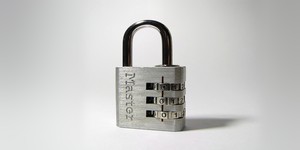European Parliament confirms Snowden's whistleblower status
October 30, 2015 | 11:31
Companies: #european-parliament #gchq #nsa

The European Parliament has voted to officially recognise former National Security Agency (NSA) contractor Edward Snowden as a whistleblower and human rights defender, calling upon member nations to offer him protection and agree not to respond to requests from the US for extradition.
Snowden hit headlines in 2013 when he left the US for Hong Kong to meet with journalists regarding a cache of hundreds of thousands of confidential documents he had gathered from the NSA pointing to, he claimed, illegal activities including warrantless wiretapping and domestic spying operations, both by the NSA itself and by partner organisations including the UK's Government Communications Headquarters. The publication of findings from these documents led to the US seeking his arrest on charges of treason, and Snowden has been avoiding the long arm of US security agencies ever since.
Details leaked by Snowden include cryptography back-doors used by the NSA and GCHQ and a theft of encryption keys used to protect SIM card data. Security services have branded him a threat, but in a tight vote of 285 for to 281 against the European Parliament branded him 'whistleblower and international human rights activist.'
The vote also called for member nations to drop any outstanding criminal charges against Snowden, grant him protection, and agree to refuse any requests from the US or others for his extradition - despite any extradition agreements that may exist. During the same hearing, the European Parliament expressed concern regarding 'recent laws in some member states that extend surveillance capabilities of intelligence bodies' including the UK, France, and the Netherlands, and called for the European Commission to 'immediately take the necessary measures to ensure that all personal data transferred to the US are subject to an effective level of protection that is essentially equivalent to that guaranteed in the EU' following an ECJ ruling that the Safe Harbour data protection scheme offered inadequate protections.
The resolution voted upon by Parliament is, however, non-binding - meaning there is nothing to stop member nations, including the UK, ignoring it outright or giving it lip-service only to arrest Snowden and offer him up for US extradition as soon as he sets foot outside his current safe haven of Russia.
Snowden hit headlines in 2013 when he left the US for Hong Kong to meet with journalists regarding a cache of hundreds of thousands of confidential documents he had gathered from the NSA pointing to, he claimed, illegal activities including warrantless wiretapping and domestic spying operations, both by the NSA itself and by partner organisations including the UK's Government Communications Headquarters. The publication of findings from these documents led to the US seeking his arrest on charges of treason, and Snowden has been avoiding the long arm of US security agencies ever since.
Details leaked by Snowden include cryptography back-doors used by the NSA and GCHQ and a theft of encryption keys used to protect SIM card data. Security services have branded him a threat, but in a tight vote of 285 for to 281 against the European Parliament branded him 'whistleblower and international human rights activist.'
The vote also called for member nations to drop any outstanding criminal charges against Snowden, grant him protection, and agree to refuse any requests from the US or others for his extradition - despite any extradition agreements that may exist. During the same hearing, the European Parliament expressed concern regarding 'recent laws in some member states that extend surveillance capabilities of intelligence bodies' including the UK, France, and the Netherlands, and called for the European Commission to 'immediately take the necessary measures to ensure that all personal data transferred to the US are subject to an effective level of protection that is essentially equivalent to that guaranteed in the EU' following an ECJ ruling that the Safe Harbour data protection scheme offered inadequate protections.
The resolution voted upon by Parliament is, however, non-binding - meaning there is nothing to stop member nations, including the UK, ignoring it outright or giving it lip-service only to arrest Snowden and offer him up for US extradition as soon as he sets foot outside his current safe haven of Russia.

MSI MPG Velox 100R Chassis Review
October 14 2021 | 15:04








Want to comment? Please log in.